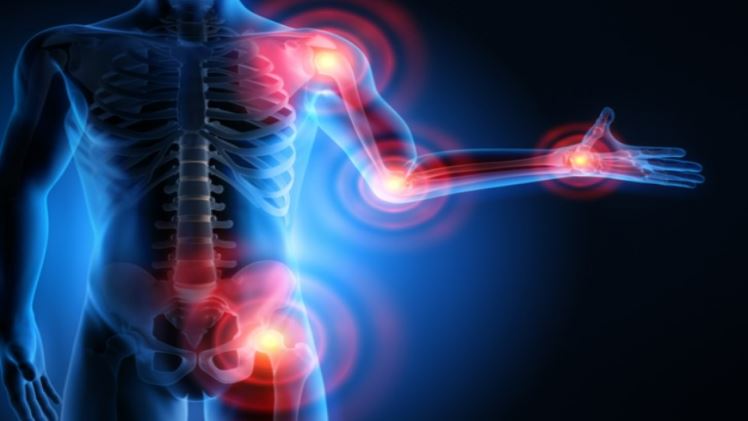
Joint pain is caused by a variety of factors.
- Osteoarthritis
Osteoarthritis is the most common cause of joint pain. The cartilage that lines the joints wears down.
Osteoarthritis may affect any joint but is most common in the hands, hips, and knees. Osteoarthritis is mainly caused by obesity, trauma, and inactivity.
To feel better, it is essential to exercise and lose weight. Physical therapy may also be helpful. Use topical gels, anti-inflammatory creams, and over-the-counter pain relievers. Also, injections of platelet-rich blood plasma or the steroid (PRP) cortisone can help. Injections of hyaluronic acids can be given in the knee. Doctors can extract platelets from the blood of patients and inject them into damaged joints or tendons to provide relief.
- Tendon Injuries
Joint pain is often caused by injury to the tendons. It can range from swelling and inflammation to a complete tear.
Tendons are muscles’ extensions. They attach to bones and are often attached around joints. You may feel pain in your joints, but it could be a muscle.
College athletes and professional athletes can have a torn tendon treated with surgery. Rest, cortisone shots, and physical therapy may be used in combination.
The muscles around the injured muscle can be strengthened so it does not have to work as hard.
- Ligament Injuries
Injuries to the ligaments can cause joint pain, particularly around the ankles or knees. Ligaments are tissue pieces that connect the bones. A ligament injury is often caused by trauma. Trauma can be defined as a strong hit.
Just like the tendon, you can tear your ligaments in half or all. Some ligaments will heal on their own, while others may require bracing. Large tears may need surgery.
- Gout
Gout is an extremely painful form of arthritis. This causes uric acids, a chemical to accumulate in the blood. This acid can leak into joints and form crystals.
Crystals can cause swelling and severe pain in the joints.
Red meat, alcohol, and shellfish should be avoided by gout patients. These foods can worsen gout. If diet changes do not relieve your pain, your healthcare provider may prescribe medication to lower blood uric levels.
- Injured Meniscus
Meniscus injuries are often the cause of knee pain. The cartilage cushions the knee joint and is located in the knee. Meniscus tears can be painful, even if they are most often caused by sports injuries.
During some activities—especially contact sports—your knee can twist and tear the cartilage that provides cushioning between your thigh bone and shinbone.
Meniscus injuries can be treated with cortisone or hyaluronic acid injections, physical therapy, and sometimes surgery.
- Autoimmune Diseases
Many autoimmune diseases can cause joint pain, such as Lupus and Rheumatoid arthritis. Viral infections can cause these conditions.
Women in their 20s to 30s are more likely than men to suffer from these autoimmune diseases, which cause pain in the small joints of the fingers and wrists.
Active living can help reduce stiffness due to lupus and rheumatoid arthritis, but medication is sometimes needed to control flare-ups.
- Frozen shoulder
Frozen shoulder, also known as adhesive capitis or frozen shoulder syndrome, is a shoulder condition that causes pain and stiffness.
The capsule is the joint that connects two shoulders and allows for the ball and socket to move. It is possible for the capsule to become inflamed, causing a lot of pain. You’ll notice your shoulder stiffening over time.
A steroid injection can help reduce inflammation, even though a frozen shoulder will likely resolve on its own over time. The hydro dilatation procedure involves injecting a large quantity of sterile liquid into the capsule of the shoulder joint to increase mobility. Physical therapy can also be helpful.
This article was written by a medical professional at Florida Medical Pain Management. Florida Medical Pain Management is proud to offer comprehensive pain management services to a diverse group of patients. Patients at Florida Medical Pain Management can get help managing hip, knee, leg, and neck pain. The practice also offers comprehensive arthritis management, along with treatments for auto accidents, sports, and work injuries. Click Here to learn more!